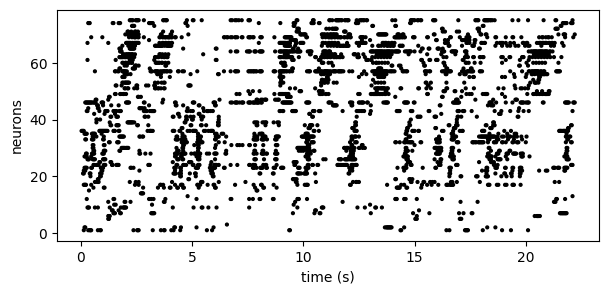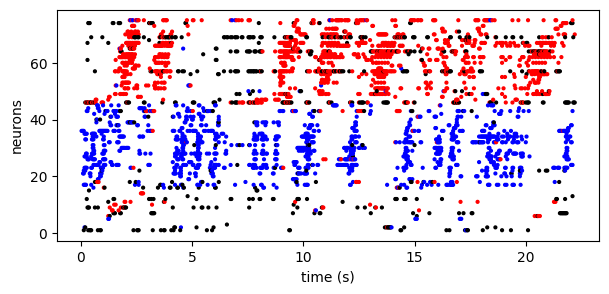This repo implements the point process model of neural sequences (PP-Seq) described in:
Alex H. Williams ☕, Anthony Degleris 🌄, Yixin Wang, Scott W. Linderman 📢.
Point process models for sequence detection in high-dimensional neural spike trains.
Neural Information Processing Systems 2020, Vancouver, CA.
This model aims to identify sequential firing patterns in neural spike trains in an unsupervised manner. For example, consider the spike train below(1):
By eye, we see no obvious structure in these data. However, by re-ordering the neurons according to PP-Seq's inferred sequences, we obtain:
Further, the model provides (probabilistic) assignment labels to each spike. In this case, we fit a model with two types of sequences. Below we use the model to color each spike as red (sequence 1), blue (sequence 2), or black (non-sequence background spike):
The model is fully probabilistic and Bayesian, so there are many other nice summary statistics and plots that we can make. See our paper for full details.
Footnote. (1) These data are deconvolved spikes from a calcium imaging recording from zebra finch HVC. These data were published in Mackevicius*, Bahle*, et al. (2019) and are freely available online at https://github.com/FeeLab/seqNMF.


